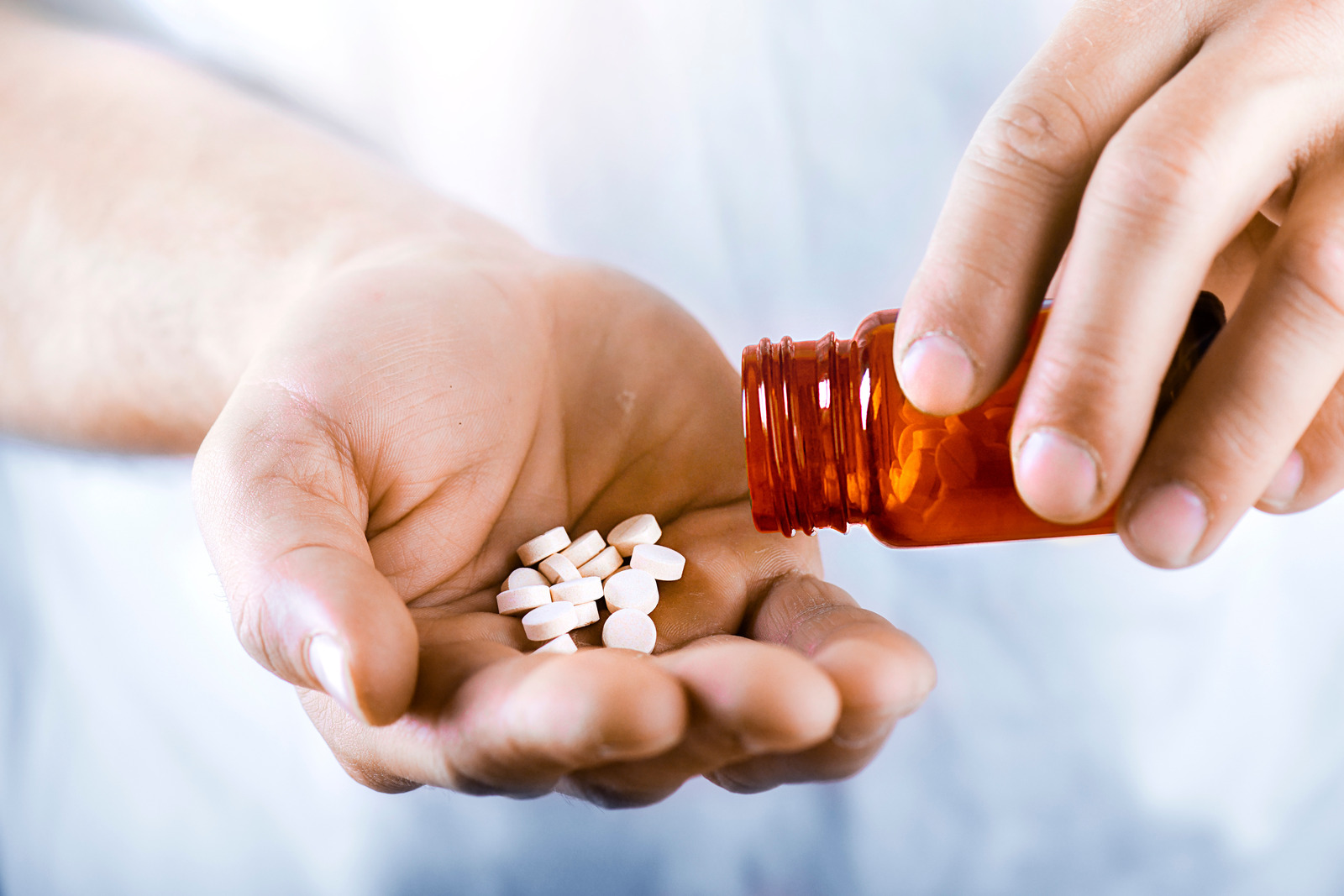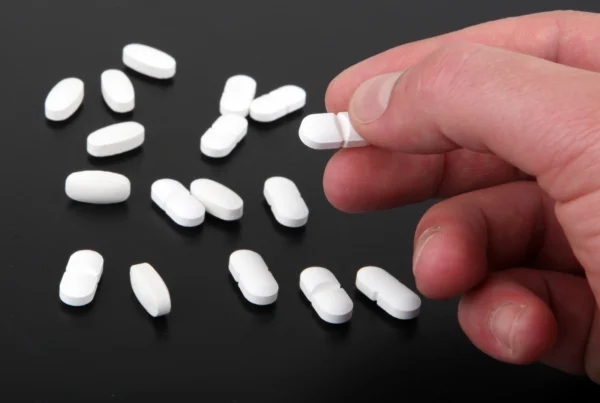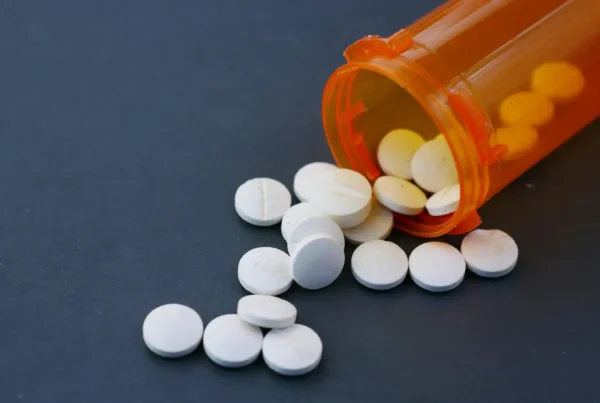
Table of Contents
Key Points
- Trazodone is a common prescription antidepressant that is used for depression, as well as off-label for insomnia, fibromyalgia, anxiety, and other conditions.
- Trazodone is generally safe with minimal side effects, but there can be risks of serious side effects and overdose.
- While overdoses are not common, combining trazodone with other drugs, especially depressants, significantly increases the risk of fatal overdose.
Trazodone is an antidepressant medication that goes by the brand name Desyrel. It’s used to treat depression. While trazodone is generally safe when used as intended, there are risks of side effects and complications, including an overdose.
Understand the risks of trazodone, how to use this medication responsibly, and how to prevent a potential overdose.
What Is Trazodone?
Trazodone comes in both generic and brand-name form under the name Desyrel. It’s a commonly used antidepressant in the serotonin-antagonist-and-reuptake-inhibitor (SARI) class of medications.[1] It’s used to treat depression and works by increasing the activity of serotonin, a neurotransmitter, in the brain to relieve the symptoms.
Along with its use as an antidepressant, trazodone has many off-label uses. It may be prescribed to treat insomnia and sleep disturbances, panic disorders, anxiety disorders, eating disorders, anxiety related to dementia, and diabetic nerve pain.
Trazodone is considered safe when used as prescribed, but it’s not without side effects and risks. Common side effects like drowsiness, fatigue, blurred vision, swelling, weight loss, and fatigue may be seen, but they often subside once your system regulates the drug.[2]
Some serious side effects can occur, including breathing problems, a racing heart, fever or ill feeling, stomach cramps and nausea or vomiting, and allergic reactions with hives, itchiness, and swelling of the face, lips, mouth, and throat.[3]
Can You Overdose on Trazodone?
Trazodone overdoses don’t happen often, but they are possible – especially when trazodone is combined with other substances or taken in larger doses. Depressants like opioids and alcohol may present the greatest risk of a possible overdose by slowing down the body’s vital functions to dangerous levels.
The symptoms of a trazodone overdose may include:[4]
- Chest pain
- Irregular heartbeat
- Difficulty breathing
- Extremely low blood pressure
- Drowsiness
- Dizziness
- Insomnia
- Headache
- Priapism (a painful erection that lasts more than 4 hours)
- Poor coordination
- Seizures
- Coma
In some cases, trazodone overdoses can lead to serotonin syndrome, a dangerous condition that causes too much serotonin to build up in the body. Serotonin syndrome is a medical emergency and may involve symptoms like fever, seizures, diarrhea and vomiting, and rigid muscles.
Rapid medical intervention with trazodone overdoses can reverse them with no lingering effects, but two rare conditions have been documented. Reports show that a trazodone overdose can cause delayed cardiac conduction abnormalities, which impact the electrical system that regulates the heartbeat, heart rate, and heart rhythm.[5] Another reported risk in rare cases is a severe drop in blood pressure that can occur after the trazodone overdose.[6]
Deaths from trazodone overdoses are uncommon, but they can be fatal, especially when combined with other substances, particularly depressants like alcohol, benzodiazepines, and opioids. Prompt medical attention is crucial if you believe someone is experiencing a trazodone overdose.
Trazodone Dosage and Overdose
Trazodone is used in different doses for different conditions. Typically, adults take between 50 and 150 mg a day, with a maximum dose that doesn’t often exceed 400 mg.[7] However, there are instances when the maximum dosage will be exceeded under the supervision of a doctor.
While 400 mg is the maximum recommended dosage, that doesn’t mean an overdose can’t occur at lower doses. Many factors affect how trazodone is metabolized, including age, existing health conditions, height and weight, sex, and more. Combining trazodone with other substances can increase the risk of overdose, even at a safe dosage.
How to Prevent Side Effects and Risks of Trazodone

If you’re concerned about the risks of trazodone, make sure to speak to your doctor. You can minimize the risks of serious side effects, complications, and overdose by following the prescribing instructions. Never take more trazodone than prescribed, at more frequent dosages, or with other substances.
Trazodone can have adverse reactions with common drugs, including some migraine and pain medications or herbal remedies. Talk to your doctor about all other medications, including over-the-counter and supplements.
You should never chew or crush trazodone tablets. You can cut a scored tablet along the score line if you need to split or reduce your dosage. It’s best to take trazodone with food to limit digestive upset.
Trazodone has side effects that can hinder your ability to perform certain activities. Don’t drive your car or engage in other activities that require alertness or coordination until you know how the drug affects you.
Drowsiness can occur with trazodone, which is why it may be used off-label for sleep problems like insomnia. However, excessive drowsiness could indicate that you may need a lower dose. You shouldn’t stop taking trazodone or significantly reduce your dosage without speaking to your doctor, as it can cause serious and unpleasant side effects.
Always keep your trazodone out of reach of children or pets. You shouldn’t share your medication with anyone. If they struggle with depression or anxiety, they need to speak to their doctor about their symptoms. Just because trazodone is safe for you doesn’t mean it will be safe for someone else.
Is Trazodone Addictive?
Current research suggests that trazodone is not addictive.[8] It can cause physical dependence with long-term use, however. This isn’t the same as addiction, but your body can become accustomed to having trazodone over time. If you stop taking it abruptly, you may experience withdrawal symptoms.
Trazodone may be misused or abused, but it doesn’t cause euphoria like other drugs. Some people may misuse trazodone to get its sedative effects.
Treating Trazodone Misuse and Polydrug Use
Trazodone isn’t considered addictive, but it can be combined with other drugs that are misused on their own. Mixing trazodone and other substances or taking higher doses than prescribed significantly increases the risks of overdose and complications.
If you’re concerned about a possible polysubstance use disorder or a pattern of trazodone misuse, it’s important to get professional help. The longer the drug is misused, the higher the likelihood of adverse effects.
Because of trazodone’s possible physical dependence, detox may be necessary to taper off the drug safely and avoid unpleasant withdrawal symptoms. This setting involves a trained medical team to keep you safe and comfortable. Once detox is complete, you can enter an addiction treatment program to get help for the addiction to other substances and mental health conditions like depression or anxiety.
Trazodone Overdose Prevention
Trazodone can be used to treat depression and other conditions effectively with minimal risks and side effects, but there is the potential for serious side effects and complications like overdose. It’s crucial to follow the prescribing instructions carefully with trazodone and avoid drug interactions that can increase your risks.
Frequently Asked Questions
OCEAN RECOVERY EDITORIAL GUIDELINES
The internet contains a vast amount of misinformation, but when it comes to your health only peer reviewed, research centered data matters. At Ocean Recovery, all content published throughout our website has been rigorously medically reviewed by a doctorate level clinician, and cross checked for medical accuracy. Our editorial process helps our readers trust that the information they are consuming is factual and based upon scientific data. Your health is our top priority, find out more about how we safeguard the integrity of information on our website. Read More About Our Process




